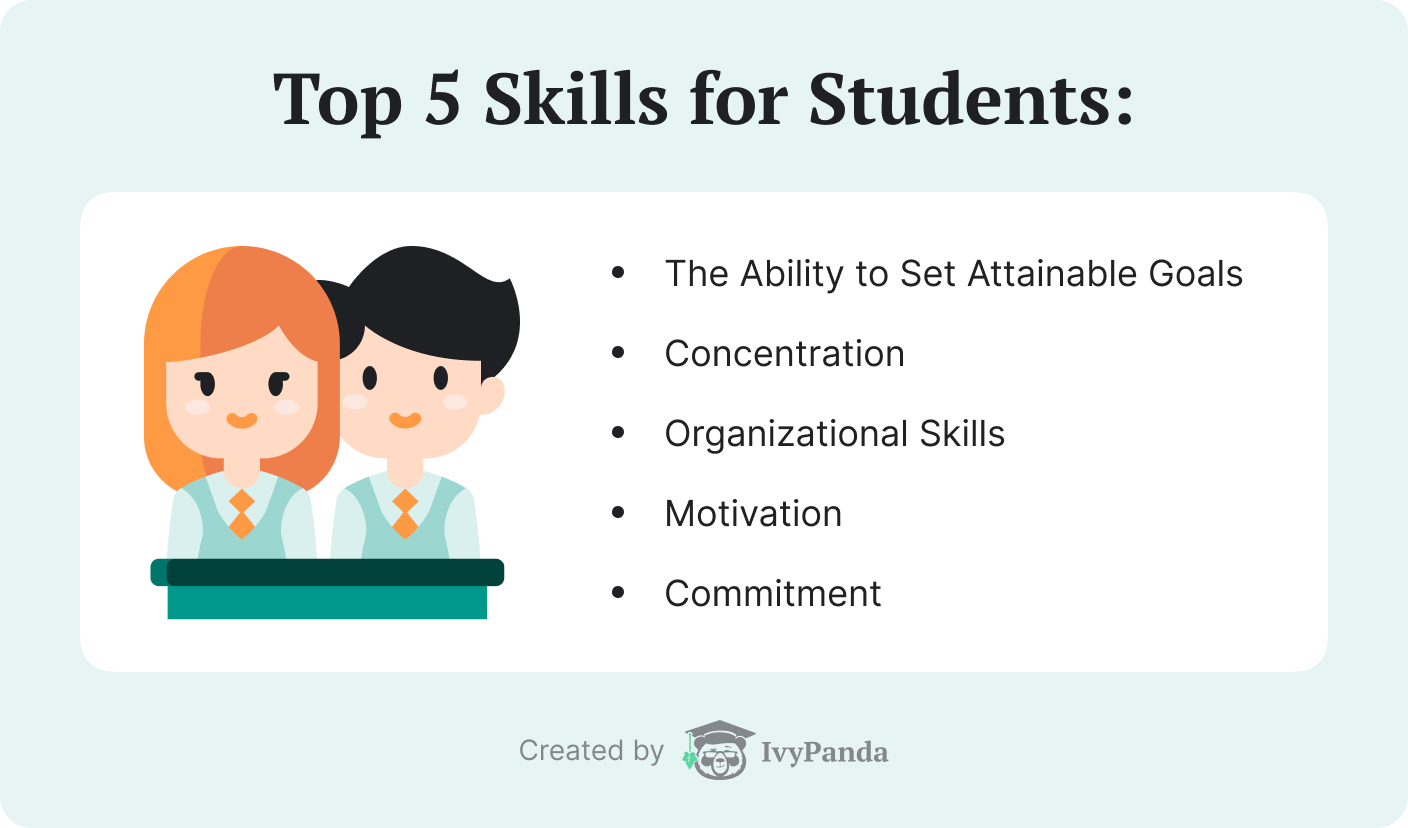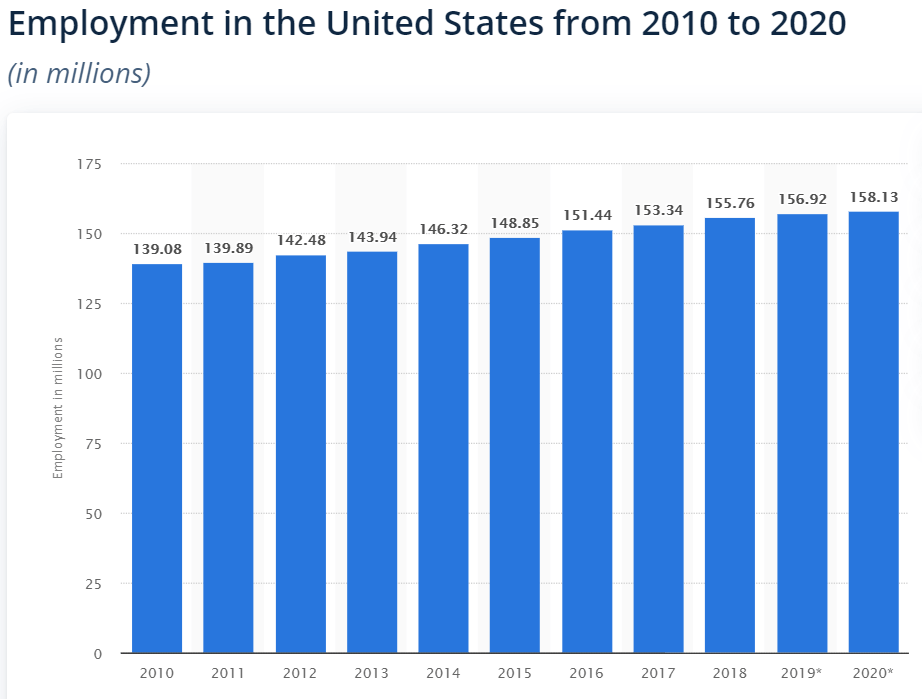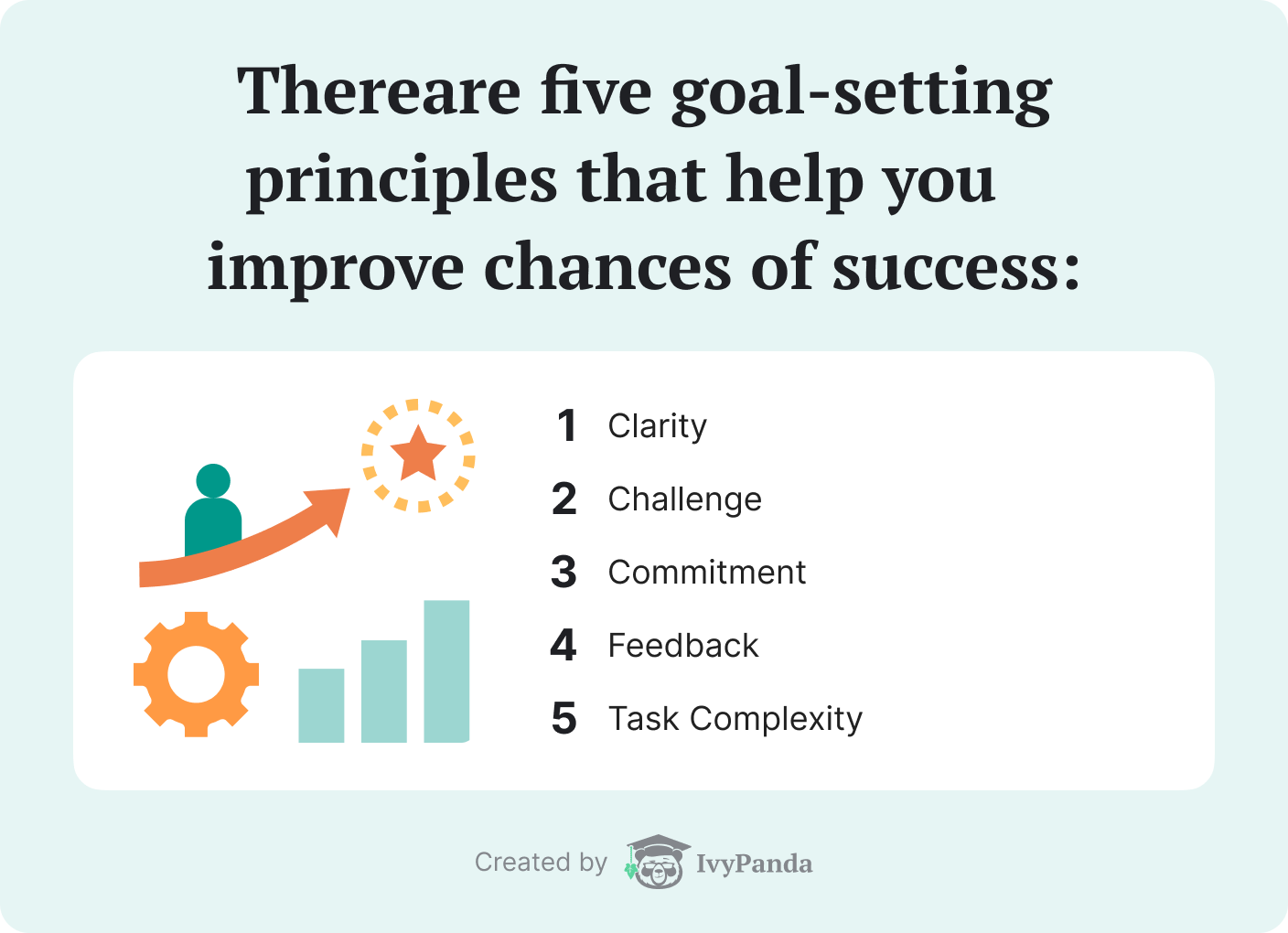Choosing a major is one of those things that can make or break student’s whole career.
There’s a crazy number of things to consider. If for some reason, you’ve made the wrong choice, it might take some time to fix this mistake.
But don’t be afraid!
Because today you’re about to find out how to choose a major properly and not waste any time, because it’s the most valuable resource you have.
This post contains information based on our own experience, as we’ve all been students. We also asked Ivypanda experts to share some tips of their own.
You’re going to find out about the things to consider and steps to take when choosing a major, how circumstances can influence the choice, and what are the most common mistakes students make.
Also, we’ll talk about taking quizzes to determine your major, and provide some useful resources to help you decide.
Last but not least, there’s an informative infographic about the most popular majors and what jobs they can get you. So stay tuned for that.
Let’s begin.
👆 How to Choose a Major: The Essentials
As we said earlier, picking a major is one of the toughest decisions a student can encounter. At least at that point in their lives. So much so that a little bit more than 60% of students would select a different major if given the opportunity, according to statistics.

The presence of a multitude of influencing factors doesn’t make matters better.
To make the right choice, it’s important to consider everything as a whole, rather than every aspect separately.
Things to Consider
Below are the aspects to look after if you want your choice of major to be well thought-through.
Interests
This can easily be one of the most crucial factors of influence when choosing a major. With that said, it’s not always the easiest to decide on either.
You have to be genuinely interested in the subject you’re studying. Otherwise, the learning process can get miserable really quickly. Not to mention the problem of having enough motivation to even finish it.
Take some time before deciding what truly rocks your world. Your tastes and worldviews may change over time. That’s why you need to be absolutely sure about them. If the idea of studying a particular subject didn’t start to seem boring and pointless after some period, then you’re on the right path.
Look closer into what you like to do the most. There are numerous examples of people turning their hobbies into successful careers.
In case you can think of more than one sphere, you’d like to dedicate your time to, look at other deciding factors and choose with them in mind.
Abilities
It’s quite a good strategy to base your decision on how proficient you are at something. This will guarantee that you won’t struggle all that much when it comes to broadening your knowledge.

However, you should also take into account subjects or things you’re not particularly good at, but are motivated enough to learn them.
Why?
Because you can discover new talents, which will align with your future plans much better.
To put it simply: don’t choose a sphere you’re hopelessly bad at. The lack of both skills and motivation to gain those skills won’t get you far.
Employability
It’s not a bad idea to think of the future job options you can have after graduation, or if you’ll be able to find the job at all.
Don’t get us wrong; we’re not willing to scare you. The goal here is for you to make your decision fully weighted so that you won’t regret it in the future.
Do a little research and see what industries are growing, and what are facing shortages. Another factor is the spectrum of job opportunities a particular major can give you. Also, there’s a set of skills you’ll get while studying a subject, which can influence your employability too.
And you know what?
We have an infographic ready that will tell you about most of the things we just mentioned. So make sure to read until the end, as it’s going to be quite helpful in the decision-making process.

As a final thought, even if the sphere you want to major in isn’t particularly popular now, that doesn’t mean you shouldn’t pick it. Just know that you have to be ready to face some challenges to become successful. This knowledge will allow you to take action beforehand, minimizing the potential issues.
Income potential
Even though it’s not the essential factor, it can still give you some insight into what to expect from your future profession. So don’t select a major only because you think it can bring you tons of money in the future. We’re going to talk about it later in the article.
Some jobs may require a particular degree to be more profitable, so keep that in mind too.
To conduct your research, you can visit PayScale and Glassdoor to see the current situation in the industry you’re interested in. Alternatively, the infographic we mentioned earlier, includes data of the average salary for the current top 30 majors, so you can check that out too.
Career opportunities
As we said above, different majors can give you different sets of job options, with some of the jobs being available for multiple specializations. And if you have a particular career path in mind, this knowledge can help to narrow down the number of majors to consider.
If a certain career is what you strive for the most, then picking a major based on it must be your top priority. For instance, to work in the computer engineering industry, an engineering or computer science major would be preferable.
Also, if a major grants you multiple job options, this means you have a chance to change your career in the future.
Success chances
You need to be sure that you’ll be able to finish studying for your major. To increase your chances, be aware of all the additional subjects you’ll have to study in order to get a degree. With complex professions that require specialists to be well-rounded, missing out on acquiring some of the necessary skills may become a problem.

Steps You Should Take to Choose a Major
We want to start this section off with somewhat of a blunt statement. Unless you have a particular career path in mind, your major doesn’t matter all that much when getting a job.
Allow us to elaborate.
These days, the fact that you have a degree is good enough for many employers. What they look at is the set of skills you have. That’s why in the infographic at the end of this article, we’ve listed skill-sets particular majors can give you. Go check that out.
We’re not saying that selecting a major is unimportant, though. It’s just that you need to have a different approach, depending on your career plans. If there are none, pick something that allows you to explore as much new information as you want, while not being too time-consuming to be able to do other things. As a part of your research, you can check out college essay examples on various topics and subjects to have an idea of what you’ll be dealing with.
Now, let’s talk about what you should do to decide on a major.
Explore majors early
Even though it requires having to fit one more task into your schedule, early major exploration pays off because you won’t have to make rushed decisions.
There are multiple ways you can approach it.
- Local college events and lectures. Don’t miss the opportunity to visit local colleges and universities if they’re nearby. You have a chance to listen to professors talking about what they do, which will make it easier to decide whether you want to go through a similar experience or not.
- Articles and books. Find articles and nonfiction books on subjects you’re considering to major in. It can help you understand what topics capture your attention the most. Finding reading materials and podcasts online is a good alternative.
- Additional summer activities. To better know what you’re getting into, try to find a summer activity close to your subject of interest. Those can include camps, internships, volunteering opportunities, or community college classes. Anything goes as long as it can help you paint the picture of your future experiences.
- Interviewing and asking around. This is one of the obvious but often ignored ways to explore majors. Ask the opinions of people who have careers you’re interested in or picked the major you want to pick. Another option is to look for experts on LinkedIn and see if they could answer some of your questions. Still, we wouldn’t recommend taking everything they’ll tell you as an action guide (we’ll explain later when discussing common mistakes). You can take the information on how to pick a major into consideration when deciding.
Carefully select schools and programs
Learn more about the available programs at schools you’re considering to enter.
In case you have multiple options for future majors, it’s better to look at schools that are flexible enough and have equally good reviews about all the programs you’re interested in. This way, you can have a chance to switch your specialization in case you realize that the one you picked doesn’t work. We’re not saying that transferring into a different university is impossible. However, switching majors within a single establishment is certainly less of a hassle.
Talk with advisors
There are department advisors who can be very helpful in the process of selecting a major. They bear tons of specialized knowledge you might not get anywhere but from them. Sure, some of them might want to persuade you to join their department. But it’s impossible to deny the value of the information they can provide.
You can also talk to students enrolled in the program. They can list all the actual pros and cons of it without any bias. Such a conversation can be equally valuable, as enrolled students can explain what you should expect from studying the major, what the course load is, and how to choose a college major in general.
Asking people on Reddit is not a bad idea, too, as there are many lively communities discussing education.

Refine the priorities
Even when you feel like you’re sure what major to pick, don’t stop researching. Keep looking for careers you might potentially take, skills to obtain, or industries to enter.
Why?
Because there’s a possibility that you might want to change your mind in the future, and in case that happens—you’ll already have prepared plan B.
Think about downsides realistically
No major is perfect. You need to be aware of the negatives that your major of choice might have.
Don’t try to downplay the cons for the sake of making the major seem perfectly fitting for you. There’s no point in fooling yourself.
Researching and talking to students we mentioned in previous steps can help you find all the information you need, including the downsides.
But don’t let those negatives become deciding factors. You just have to be aware of them and not idealize the future experience.
Taking Circumstances Into Account
Time to talk about special circumstances that completely change the process of picking a major.
Switching majors
When you come to the conclusion that the current major isn’t really what you hoped for, there’s still a way out. However, before making this step, you need to think extra hard to avoid making the same mistake.

First things first, get to the bottom of the problem. You need to be absolutely sure that changing the major is what you really want. Start exploring all over again (steps are described above), preferably during time off. Otherwise, checking out your options might get too expensive and time-consuming.
If you’re hoping to get less assignments and exams after switching a major (within the same university, or after transferring to a different one), we need to warn you. It won’t get much different from the current situation. That’s the whole point of education, and to get a degree, you need to complete at least the minimum set of requirements.
Take your progress with the current major into account. If you’re close to finishing it, maybe a better idea would be to get a degree and then go for a graduate diploma in a new sphere you’re interested in. Starting all over again when you’re almost done would just be counterproductive.
Double major
If you’re considering to get a double major, you need to have a good reason for it. You can’t take this path just because you want to have more options or can’t decide on one major.
Think whether or not it’s possible to integrate two majors you’re interested in. Some schools require students to do so, and if majors you’re thinking of aren’t that related, this may bring a lot of trouble.
There’s also an issue of scheduling and taking classes. Double major means more requirements and way more planning in order to make it all work. Quite often, students have to spend an additional semester to be able to finish everything, which means another semester of paying tuition.
One of the options to combine multiple interests is to pick a subject as your minor. It takes a bit less effort and requires less time.
Creating a major
If your school allows students to come up with their own majors, you need to put a lot of thought before committing to it. If you just can’t select one of the existing options, this path isn’t for you.
Creating your own major takes a lot of planning and a crystal-clear idea of what you want to study.
Keep in mind that many schools offer pretty vague programs like Humanities or Liberal Arts. They usually result in quite a wide selection of career paths. So, in case you don’t feel like you’re ready to work extra hard on planning out your own major, this can be a good alternative.

🛑 Common Mistakes When Picking a Major
We can all make mistakes in almost anything we do. The process of choosing a major is no exception.
To save you some time and prevent you from making them yourself, here’s the list of the most common mistakes students make when picking a major.
1. Letting other people decide for you
Remember, we told you about not using other people’s advice as the only proper action guide?
The reason is that they’re different people.
Even if you have a lot in common and you’re talking about similar experiences, they still have their own point of view on things, make their own decisions, and live their own lives. And all those things shouldn’t necessarily apply to you. Even if they tell you they have a fool-proof method of how to decide on a college major.
Yes, some of their advice can be useful, and you can consider it. But the decision has to be all yours, based on your own research and desires.
2. Choosing only for future income
It’s not a bad idea to think of your education as an investment. We discussed it earlier. You’re practically giving away your time and money to get a better job opportunity later. With that logic, the better your future career options are—the more potential there is in a major you’re about to choose.
But will it all be worth it if you don’t really like the sphere you’re entering? Not only that, but you will then spend 40 hours every week doing a job you’re not passionate about just because it pays well.
The first priority should be thinking of what makes you happy. Gain the knowledge and learn skills that can help you do what you like the most. And if you’re good enough at it—earning enough money won’t be a problem.

3. Not having a goal
While we’re still close to discussing the investment concept, let’s tackle another common mistake.
That mistake is not knowing why you’re getting a certain major.
Considering that you’re spending quite a lot of resources, the least you need to be aware of is what you’re getting in the end. There has to be a clear understanding of what your specialization can lead to and how it relates to the goals you’ve set.
4. Looking to find your passion
You’ve probably heard people say that one should “choose a job they love.”
But how can you do that if you’ve never had that job and lack experience?
It’s practically impossible to find out what you’re truly passionate about without having hard work involved. You may struggle at first. But once you start becoming more skilled and better at what you do, you’ll realize that the “passion” comes along.
So, if you’re really interested in something, give it a shot. Hard work pays off, and true passion comes later.

5. Choosing the same major as your friends
Let us say this thing again: they are different people.
People tend to drift away from their friends, and that’s normal. Over time, you gain new interests, change your points of view, and so do your friends. And it’s no wonder that after a while you’ll hardly find anything to talk about with most of them.
Now imagine getting into such a situation after you’ve already spent a year or two studying a major you’re not really interested in.
So choose a major based on your interests, and don’t be afraid to get separated from your friends.
6. Getting a double major for the sake of it
As we told you before, you need to have a well-thought-through plan to back up your decision to get a double major.
If you’re not aiming for a particular job or industry and just think that a double major will look impressive in your resume—don’t do it. The effort you’ll have to put isn’t worth it. Moreover, the extra time required to finish that major could mean a couple of lost opportunities.

7. Skipping on getting experience
When studying for a major, you get theoretical knowledge. Even if there are field trips, experiments, or other practical activities involved—it’s still far from what you’ll actually be doing on the job.
To avoid being unprepared for real-world challenges, try finding internships, relevant part-time jobs, or job shadowing opportunities. All these options will give you the real experience and more understanding of what you’ll be dealing with in the future.
8. Being afraid of change
We’ve already discussed changing majors and what you should consider when going for it.
Even though it’s not a rare thing to do, many students get very hesitant and give up the idea altogether because of how much money and time they’ve already spent.
But the thing here is that it’s not about you throwing in the towel and giving up. You’re just changing the course to be able to reach your true goal.
Evaluate the progress you’ve made and think of all the great things you can do after switching. Don’t let yourself stay miserable because of what’s already in the past.
9. Choosing for too long
Even if your college allows students to enter when they’re still undecided about their major, we’d recommend not to exploit the opportunity for too long.
Sure, you can spend some time exploring and making up your mind (and we encourage you to do that). But don’t let the exploration turn into “chasing your passion” we mentioned before.
It’s very unlikely that the realization of what path to take will magically dawn on you one day. The sooner you decide—the more necessary experience you’ll gain in the same period of time.
10. Romanticizing a career
A lot of students make their decision based on a romanticized image inspired by the movies they’ve seen.
The big problem here is that real life is way different from what you see on TV. And after choosing a major and later realizing that it’s not what they hoped for, students end up trapped without any other plans or alternatives.
Have realistic expectations, and do your research so that you don’t regret your decision later.
🤔 Taking a Quiz to Decide on a Major
Rather than choosing at random, it’s still better to make a choice based on your personality and preferences. And quizzes are all about that.
Preparation for the Quiz
Before jumping headfirst into completing a quiz, we’d recommend going through some preparation.
First, try and carefully go through all the steps we’ve mentioned in the article up until this point.
Do some research about the majors you’re interested in the most. This will prevent you from making the blind choice in case the quiz will suggest a certain specialization.
Also, be aware that some quizzes are created by certain universities, and they can lean towards specific majors and programs that said university offers. In other words, they can be biased, much like advisors, we talked about earlier.
To make a choice less dependent on a single result, take multiple quizzes. And if the results look similar—you’ll know you’re on the right path.
List of Quizzes Available
Here’s a list of quizzes you can check out.
- Which college major should you be?
- Comprehensive quiz to determine your ideal college major
- Quiz: What should I major in?
- Choose your major
- What major is right for me?
- Career quiz: Personality test
- College major quiz by Innate
- College major quiz
- Career quiz at PrincetonReview
- College major quiz from Saint Louis University
- What should be your major?
🌐 Useful Websites and Assessment Tools to Help You Choose a Major
We want to make this article even more informative and helpful. That’s why we’ve prepared a selection of websites that can help you choose the right major.

This is a well-known resource that helps students to prepare for the ACT and SAT exams. But apart from that, there’s also plenty of information for those who just try to choose their major. It gives detailed explanations on what a major is and why it’s important, answers some of the most popular questions, and shares relevant articles.
Big Future is a student platform from the creators of the College Board website. Its goal is to help students select a major and why exactly they should do that. With the help of this site, the choice will be weighted and deliberate.
This site offers a wide selection of resources for students who are in the process of deciding on their major. It can help to make the proper assessment and make major suggestions based on its results.
By learning more about their personality traits, students can better understand what factors can influence their future careers. With that knowledge, it will be easier to make an informed decision to choose a proper major.

The name of this site is pretty self-explanatory. It helps students navigate through a wide selection of majors and make the right choice based on a plethora of information it provides. There are videos, workshops, informative articles, and pretty much all you need to make the right choice.
CollegeData collects detailed information about colleges and programs they offer. It can guide you through the selection process and help you pick the right major for you, based on your preferences.
Another helpful website that can make the process of selecting a major less tough and stressful. With tools like Major Matcher, this service will perfectly align available specialization options with your abilities and interests.
This service will help you get into the college or university you always dreamed of. If you still haven’t decided what path to take, their team of former admission officers will help you to take a pick.
🎓 It’s All About the Future. Top 30 Majors and What They Can Give You—The Infographic
Picking a major can still be tough even after all the advice we’ve given you.
And we can’t blame you for that.
The opportunities given to today’s students are truly endless, and it’s easy to get lost in them. So, we’ve prepared one last surprise that can help you decide on your major once and for all.
We’ve put together an infographic, listing 30 of the most popular majors. Not only that, but we’ve also added extra information to go along with it.
So what’s inside?
From this infographic, you’ll learn what skills each of the listed majors can give you (apart from ones specific to your profession), what are the possible job options, and what is the median salary in the particular industry.
Please note that we’re not putting majors in a particular order (best to worst or vice versa). Also, the salary data is an average across the industry and is supposed to give you the general idea of what a specialist can earn. Particular job salaries may differ from what’s in our infographic.
Interested? Then let’s get to it

🔗 Resources
- 10 Dumb Mistakes Students Make When Choosing a Major
- Your Guide to Choosing a Major
- Guide to Choosing College Majors
- How to Choose a College Major
- The Ultimate Guide to Choosing a Major
- How to Choose a Major—University of Southern California
- Top 15 Mistakes to Avoid in Choosing a College
- What Should I Major In?
- How to Choose a College Major—Discover
- How to Choose a Major—William & Mary
- Choosing a Major—The University of Alabama
- Choosing a Major—Wooster
![How to Choose a Major? Tips, Steps & Mistakes to Avoid [+Infographic]](https://ivypanda.com/blog/wp-content/uploads/2020/10/top-view-of-handshake-over-desk-with-keyboard-and-charts-736x491.jpg)
![ADHD 101: A Definitive Guide for Students [+Tools & Resources]](https://ivypanda.com/blog/wp-content/uploads/2020/10/0-title-image-fidger-spinner-309x208.jpg)


Preparation for the Quiz